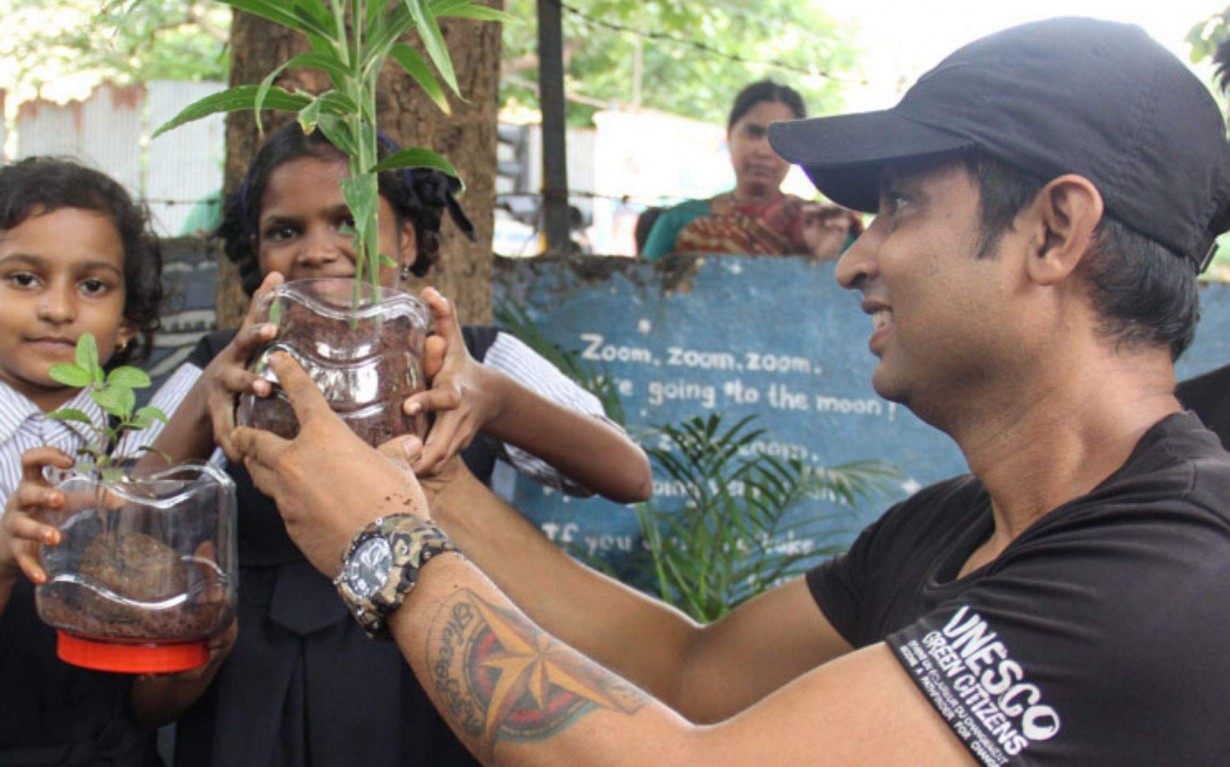Green School Program At Mumbai
We see trash everywhere – the muddy mosaic of plastic bottles and colourful wrappers lining the edge of every street. Likely, they will stay there, housing parasitic worms and insects that spread diseases through food into humans.
After a rainy day, some of the trash may drain into the local sewage to share plastic toxins to the water and fish, both which can end up in our bodies. Ultimately, they’re trapped in a mega plastic soup in the Indian Ocean gyre, killing and contaminating the fish and birds that climb the food chain back into our stomach. So it’s a multifaceted health crisis, one that no one should wait until they see it in themselves.
But that’s just one of many possible fates.
What happens if a municipality truck finds these trash? It carries them several kilometers to Deonar Dumping Ground where, tens of meters below a muted terrain of sun-bleached, grey sludge, our trash is trapped and deprived of oxygen. The plastic will stay there for another thousand years, leaking toxins through the ground into rivers.
The organic waste – paper, yard, and food scraps – now attract anaerobic bacteria, which slowly chew away at the matter releasing large amounts of methane, a major contributor to global warming – and nose-wrenching odors as well.
Adding to the greenhouse gas, we are losing the source for nutrient-rich humus to feed energy into new life cycles – segregation at the source would allow for organic composting. Our situation is not trivial as it’s estimated that 56% of India’s landfills is organic matter, locking away nutrients and polluting the air.
To stop the irreversible exile of tons of plastic and organic waste from the cycle of nature, the only sustainable solution is reducing waste at the source – large-scale.
This is where Earth5R’s Green School Program comes into play. Because awareness is the first step in solving this socio-environmental crisis, the team visited municipal schools to educate future active citizens on the problem and solution through hands-on, eco-workshops.
Through weekly visits, the Green School Program goal is to incorporate organic gardening, composting, rainwater harvesting, solar panels, segregation dustbins, and other recycling initiatives one school at a time.
The idea was to set up a small garden in the school with the help of the school students, so they have ownership of the Green School Program. Also, it’s well known that engaging in nature has a healing effect on the children.
This was the first visit to Durgadevi Sharma Marathi School at Chandivali, Mumbai. Tatsumi Yanaba, Yasmin Giordano, Sarina Hotchandani, Montserrat Abud, Maryn, Sharad Vegda and Saurabh Gupta headed off in the afternoon carrying saplings, soil, plastic containers, and newspaper.
These newspapers and plastic pots were donated by the residents of Paradise building, Raheja Vihar. Few residents of Raheja Vihar also donated money to buy saplings and soil for setting up of a small garden for the kids in the school.
The primary school students were excited from the start, seeing so many internationals hovering around in their small, fenced ground.
After sharing the idea, the team initiated their welcome by folding origami kabuto (samurai helmets) using old newspaper. This was a fun way of introducing the concept that trash doesn’t have to stay trash.
Next, the team proceeded with organic gardening by planting crops into waste-made plastic pots. They steadfastly cut the plastic containers and poked holes in them with a blunt knife and scissors, hastened by the curious students.
The Earth5R team was overjoyed at how exhilarated the students were for their first plant. When distributing soil, we wrestled to get them in a single line. The sapling team planted included various vegetables and fruits such as tulsi, ginger, papaya, and mango.
Before the event, the local slum children helped the team find these wild crops. Their profound knowledge of nature came as a pleasant surprise.
-Reported by Tatsumi Yanaba, Photos by Sharad Vegda



